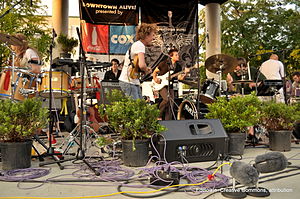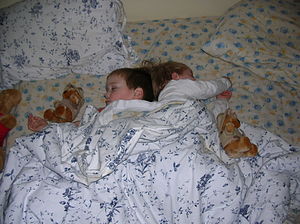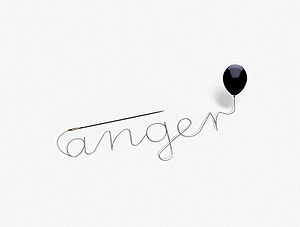Stubborn in a game of chicken, who will win?
“The principle of the game is that while each player prefers not to yield to the other, the worst possible outcome occurs when both players do not yield.”
As said by one avid chicken-owner at the UK World Championship Hen Races, “Listen birdbrain, you either perform for me, or perform for Colonel Sanders.”
Sometimes it is like that between the idea of, everything starts and ends with Me, that we hold here at FriendtoYourself.com and others who say, Love God first.
So, in the spirit of hoping, and “racing well,” let’s discuss.
If we could Love another first, that would just be great. But we can’t. (Hear the whine? 🙂 I suppose I have made those sounds before.) We can’t. I think that is the curse of Adam and Eve. We can’t love anyone truly more than ourselves. It always comes back to me. We can be thankful for Jesus saving those Garden-of-Edeners, and the rest of us from that lonely circle. Jesus inserted Himself into our round and round so first, we are never alone, and second, we have Love that is bigger than any catastrophe we think we were born into or happened upon along the way.
When I was a young-in, I studied at Rosario Beach. We took samples from the ocean and did funky things to them and finally were tested and passed the class. In this process we studied insertion genes. These are awesome in their changing power. This is how mutations happen in nature as well as how we now do genetic engineering.
None of us, like lined up chromosomes, can insert into ourselves the ability to start or end anywhere but with Me. But, just like the stupidity of working out before you go to the gym, we do not wait for that to be inserted into Me before we pursue Love. Love inserts in. Until then, the Love part is foreign to Me. It is a mystery. Our life journey of beginning and ending with Me is changed from the one we started with.
Like weaving in magic into the common circle that everything starts and ends with Me,… But we are not magicians. I am no magician, although I have watched, “Now You See Me,” 🙂 and I understand that even magicians do not believe what they do is magic.
We have often said and heard others say, “Don’t love Me first, Love God first.” We are not worth much to our neighbor though if we do not like Me.
So basically any time on our personal life journey, we might have enough insight to perceive the Loving of another more than Me, think Magic. Someone did you an insert. Now, even though your circle will still end with Me, your Me is changed and connected to Love.
It is a bummer that so many of us, with inherent self-recrimination, tell ourselves and others to, “Love God first,” when we might as well demand that we do our own gene engineering with Magic. If and/or when we do love another first, by definition, that is not about Me.
“We love, because He first loved Me.” ‘Member? 1Jo 4:19
We can, however, enter ourselves in for the insertion. If we do not put our name in, it is harder to get called I would think.
Self-Care Tip: Believe in Magic to treat yourself and others kinder, with less self-recrimination, and with more hope.


























